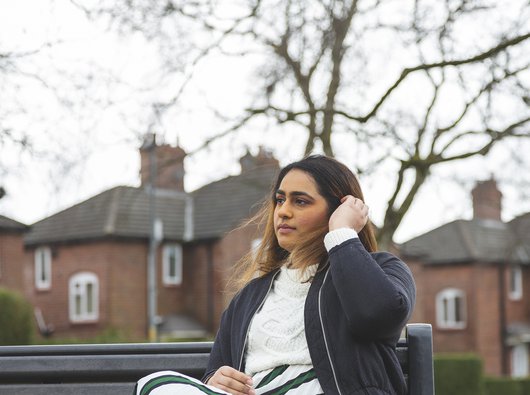Acute lymphoblastic leukaemia (ALL) treatment planning
Throughout your treatment, your healthcare team will always discuss your treatment options with you. They’ll want to hear what you think, answer your questions, and explain anything you’re unsure about.
Treatment aims
In this section we talk about treatments for ALL. You might also want to read our general information about blood cancer treatment planning.
We also have some important information on staying safe if you’ve got blood cancer, covering things like risk of infection and vaccinations.
It’s very important to start treatment soon after you’ve been diagnosed, because ALL can develop quickly.
It may feel like things are happening too fast to keep up with the change to your life, but many people find that starting treatment straight away is reassuring.
The best treatment for you will depend on your individual situation. Generally, treatment for ALL can be divided into:
- Active treatment, which aims to get rid of the leukaemia cells and help your bone marrow work normally again.
- Supportive care, which helps you feel better and supports your body through some of the problems caused by ALL and its treatment.
Everyone will receive supportive care, whether they have intensive or less intensive active treatment.
Some people may choose not to have any active treatment, or the doctors might not recommend it as the best option. If this is the case for you, an approach called palliative care will help control the symptoms of ALL and improve your quality of life.
The palliative care team will be able to support both you and your family.
Information for young adults
For young adults with leukaemia, lymphoma or any blood cancer type. Your guide to treatment, side effects, coping with emotions, friends and work or study.

Your treatment plan
Some people find it hard to fully understand the details of their treatment when they’re trying to cope with the stress of being diagnosed with ALL.
There isn’t a single ‘best’ way to deal with this situation or a right way to feel. Don’t be afraid to ask as many questions as you need to.
Your doctor will recommend a treatment plan and talk to you about what it will involve. Treatment plans are tailored to each individual, so if you meet someone else with ALL, they might be having different treatments.
Some treatment programmes (also called protocols) are very intensive (concentrated), while others are less intensive. What’s right for you depends on your age, general health and the type of ALL you have.
ALL becomes more difficult to cure as people get older. We don’t know the reason for this – it could be that the disease itself is different in older people, or it could be because it’s harder for older people to cope with intensive treatment.
Treatment decisions are never based on age alone, but on general health and fitness. Your wishes are always taken into account.
Your treatment plan may need to change at any point. If this happens, your hospital team will explain why, and talk to you about the different options available to you.
Starting on steroids
Most people will begin steroid treatment while their treatment plan is being confirmed. The steroids will start working to get rid of the leukaemia cells.
Fertility matters
Before your treatment starts, you should talk to your healthcare team about how it might affect your ability to have children, if that’s relevant and important to you.
Active treatment can affect your fertility. Because treatment for ALL has to start so quickly, there usually isn’t time to preserve a woman’s eggs. Men sometimes have a chance to freeze their sperm for the future.
If you do go on to have children, studies have shown that the treatment you’ve had won’t affect their health. Similarly, the likelihood of your child getting ALL would be no greater than for any other child.
Your hospital team will be able to discuss your options with you, and refer you to a fertility department, if appropriate.

Talk to other people affected by blood cancer
Hear from and connect with people who understand.
